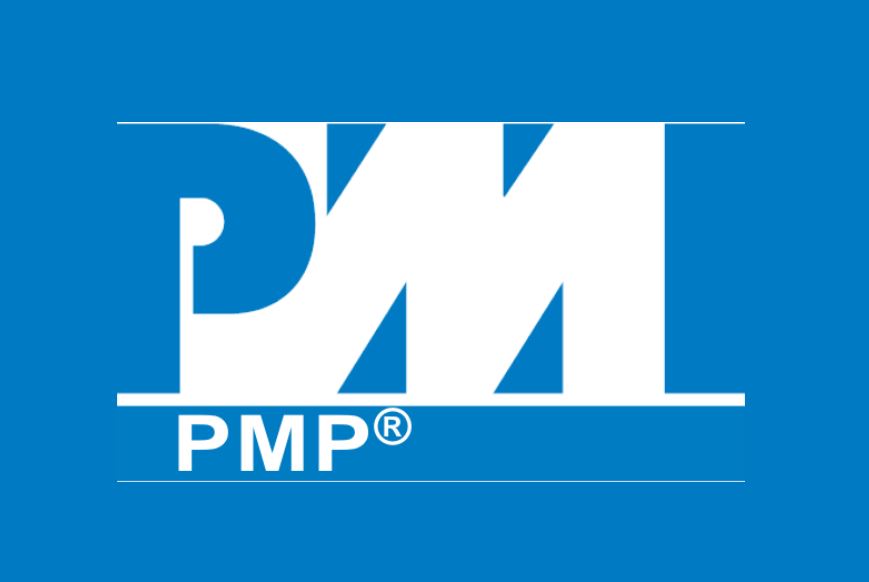Welcome to my guide on becoming a Notary in Maine! If you’re interested in becoming a Notary and want to know how to apply for a Notary commission in Maine, you’re in the right place. In this article, I will walk you through the steps and requirements to become a Notary in the state of Maine.
As a Notary in Maine, you play a vital role in serving the public by verifying and witnessing important documents. It’s a profession that requires attention to detail, integrity, and a commitment to upholding the law.
Applying for a Notary commission in Maine is a straightforward process. You will need to submit your application to the Maine Department of the Secretary of State. The good news is that there is no specific training course required to become a Notary in Maine, although optional training courses are available if you want to further enhance your knowledge and skills.
Once you receive your Notary commission, you have the option to use a rubber stamp or an embosser for notarial acts. It’s important to note that starting from July 1, 2023, an official Notary stamp is required for all electronic records. Additionally, as a Notary in Maine, you are required to maintain a journal to record all electronic and remote notarizations.
Becoming a Notary in Maine is a rewarding experience that allows you to contribute to your community and help individuals with important legal documents. So, let’s dive into the details and get you on your way to becoming a Notary in Maine!
Notary Supplies and Equipment
When becoming a Notary in Maine, it is important to have the necessary supplies and equipment. Here are some essential items:
Notary Seal
A Notary seal is a crucial tool for performing notarial acts. The seal should include the Notary’s name, the words “Notary Public,” the phrase “State of Maine” or simply “Maine,” and the commission expiration date. It is recommended to choose a reliable vendor to ensure the quality and durability of the seal stamp.
Rubber Stamp and Embosser
In addition to the official Notary seal, it’s wise to have an extra rubber stamp or an embosser as backup. This can provide extra security and prevent any downtime if the main seal is misplaced or damaged.
Notary Journal
A journal with numbered pages and tamper-proof sewn construction is essential for maintaining a record of your notarial acts. It is important to note that simple notebooks or glue-bound journals are not acceptable in Maine. Keeping a detailed journal ensures compliance with the law and provides a valuable reference for future use.
“A well-maintained Notary journal not only fulfills legal requirements but also demonstrates professionalism and accountability.”
In summary, having the right supplies and equipment is critical for every Notary in Maine. With a reliable Notary seal, an additional rubber stamp or embosser, and a proper journal, you can confidently perform your notarial duties and uphold the integrity of the profession.
| Essential Notary Supplies | |
|---|---|
| Notary Seal | |
| Rubber Stamp | |
| Embosser | |
| Notary Journal |
Notary Bonds and Insurance
In Maine, Notaries are not required to purchase a surety bond to protect signers against financial damages caused by negligence or misconduct. However, Notaries can choose to purchase errors and omissions (E&O) insurance, which covers legal fees and damages up to the policy amount. While a bond protects the public, an E&O policy protects the Notary.
Benefits of Notary Bonds
Bonds offer an additional layer of protection for signers and clients. They provide financial recourse in case the Notary makes an error or acts inappropriately during a notarial act. Notary bonds ensure that individuals who rely on notarized documents are safeguarded against potential losses resulting from a Notary’s mistakes or misconduct.
Understanding Errors and Omissions Insurance
Errors and omissions (E&O) insurance is a form of liability coverage specifically designed for professionals such as Notaries. It protects them from potential claims and lawsuits arising from errors or omissions made while performing notarial acts. E&O insurance helps cover legal fees and any resulting damages that may occur, providing financial security and peace of mind.
E&O insurance policies typically cover:
- Legal defense costs
- Settlements or judgments
- Damages caused by negligence or mistakes
Choosing the Right E&O Policy
When selecting an errors and omissions insurance policy, Notaries should carefully review the coverage options and policy limits offered by different insurance providers. It’s crucial to consider the specific needs and potential risks associated with notarial acts. Comparing policies and seeking professional advice can help ensure that Notaries have adequate protection in the event of a claim or lawsuit.
By investing in an E&O policy, Notaries can demonstrate their commitment to professionalism, while also safeguarding their personal finances and reputation.
I am dedicated to providing the highest level of service and accuracy in my notarial acts. That’s why I have chosen to protect myself and my clients by securing a reliable errors and omissions insurance policy.
Next, let’s explore the fees and limitations surrounding notarizations in Maine.

Notarization Fees and Limitations
As a Notary in Maine, I have the authority to charge a reasonable fee for my notarization services. However, it is important for me to inform signers of the fees in advance to ensure transparency and avoid any confusion. The fees for notarization should be clearly communicated and agreed upon before proceeding with any notarial acts.
It’s important to note that there are certain limitations and restrictions in place for Notaries when it comes to notarizing certain documents. As a Notary, I am prohibited from notarizing any document in which I have a financial gain or beneficial interest. This ensures that the notarization process remains fair, unbiased, and impartial.
Additionally, there are specific statutory requirements that I must adhere to when it comes to notarizing for certain individuals. For example, I am not allowed to notarize documents for my spouse, domestic partner, or immediate family members. These limitations are in place to maintain the integrity and credibility of the notarial process.
Key Takeaways:
- Notaries in Maine can charge a reasonable fee for notarization services.
- Signers should be informed of the fees in advance to avoid confusion.
- Notaries are prohibited from notarizing documents in which they have a financial gain or beneficial interest.
- There are limitations on notarizing for spouses, domestic partners, and immediate family members.
By adhering to these notarization fees and limitations, I strive to provide professional and ethical notary services to the residents of Maine.
Applying for or Renewing a Notary Commission
Applying for a Notary commission in Maine is a straightforward process that involves completing the application form provided by the Secretary of State. To ensure a smooth application process, it is essential to familiarize yourself with the eligibility requirements before submitting your application.
Filling out the Application Form
The application form provided by the Secretary of State will require you to provide personal information such as your full name, residential address, and contact details. Make sure to double-check the form for any errors or missing information before submitting it.
Additionally, you may be asked to disclose any criminal convictions, previous Notary commission revocations or suspensions, or any disciplinary actions taken against you in a professional capacity. It’s important to answer these questions truthfully and accurately.
Meeting the Eligibility Requirements
In order to be eligible for a Notary commission in Maine, you must meet the following requirements:
- Be at least 18 years old
- Be a resident of Maine or have a principal place of business in the state
- Be able to read and write in English
- Not have been convicted of a felony
- Not have had a Notary commission revoked or suspended in the past
If you meet these requirements and have successfully submitted your application, you can expect to receive your Notary commission within a few weeks, depending on processing times.
Renewing Your Notary Commission
Renewing your Notary commission in Maine is a relatively simple process that can be done online. The renewal process involves:
- Completing a 30-question online examination to demonstrate your knowledge of Notary laws and regulations
- Paying a $50 renewal application fee
Once you have completed the online renewal process, you will need to appear before a Dedimus Justice to take the oath of office. The Dedimus Justice will provide you with a certificate of qualification, which you will then need to submit along with any other required documents to the Secretary of State’s office.

Remote and Electronic Notarization in Maine
Maine has embraced the advancements in technology, enabling the implementation of remote and electronic notarization through the adoption of the Revised Uniform Law on Notarial Acts (RULONA). As a Notary, you now have the opportunity to leverage these innovative methods to better serve your clients and streamline the notarization process.
To get started with remote or electronic notarizations, you will need to complete and submit the “Notice to Perform Electronic and/or Remote Notarizations” form to the Secretary of State. This form acts as your official application for approval to perform these types of notarizations and should be submitted along with any required documentation.
Remote notarizations involve the use of approved technology providers to facilitate the notarization process with individuals located remotely. These providers offer secure platforms that enable you to verify a signer’s identity, witness their electronic signature, and affix your own electronic seal to the document. By leveraging this technology, you can offer convenience and flexibility to your clients, as well as expand your notarial services beyond geographical boundaries.
Electronic notarizations, on the other hand, require an in-person notarization process with the use of electronic signatures. This means that you will meet with the signer face-to-face, verify their identity, witness their electronic signature, and apply your electronic seal to the document. Electronic notarizations combine the benefits of traditional notarizations with the efficiency and security offered by electronic signatures.
It is crucial to note that not all technology providers meet the required standards for remote and electronic notarizations in Maine. Therefore, it is essential to choose a reputable and approved provider to ensure compliance with state regulations and safeguard the integrity of your notarial acts.
Frequently Asked Questions about Maine Notaries
Aspiring Maine Notaries often have several questions as they navigate the process of obtaining their commission. Here are answers to some commonly asked questions related to Maine Notary requirements, applying for a commission, notarizing for family members, and the term of office. Familiarize yourself with these insights to ensure a smooth journey towards becoming a trusted Notary Public in Maine.
Maine Notary Requirements
- Do I need any specific qualifications to become a Notary in Maine?
To become a Notary in Maine, you must meet the following requirements: - Be at least 18 years old
- Be a resident of Maine or have a place of employment or practice in the state
- Be a U.S. citizen or legal permanent resident
- Be able to read and write the English language
- Not have been convicted of a crime punishable by imprisonment for one year or more
Applying for a Commission
- How do I apply for a Notary commission in Maine?
To apply for a Notary commission in Maine, you need to:
- Complete the application form provided by the Secretary of State
- Pay the application fee
- Submit the application form and fee to the Secretary of State’s Office
The fee to become a Notary in Maine is $50. This fee covers the application and background check.
Notarizing for Family Members
- Can I notarize documents for my family members?
As a Notary in Maine, you are generally prohibited from notarizing documents for family members. This includes spouses, domestic partners, and immediate family members. Notarizing documents for close relatives can create a conflict of interest and compromise the impartiality that Notaries are expected to maintain.
Term of Office
- How long does a Notary commission last in Maine?
The term of office for a Notary in Maine is seven years. It is important to keep track of your commission expiration date to ensure you renew your commission on time and continue fulfilling your notarial duties without interruption.
By addressing these frequently asked questions, we hope to provide a better understanding of the requirements, processes, and limitations related to becoming a Notary in Maine. If you have any further inquiries, don’t hesitate to consult the official resources provided by the Maine Department of the Secretary of State.
Conclusion
To become a Notary in Maine, aspiring individuals need to complete the necessary application and meet the eligibility requirements set by the Secretary of State. By adhering to the regulations and guidelines surrounding notarization, including the use of proper supplies and equipment, understanding fees, and limitations on who can be notarized, one can embark on a fulfilling journey as a trusted public official in Maine.
Becoming a Notary involves a straightforward process that begins with applying for a Notary commission through the Maine Department of the Secretary of State. While there is no mandatory training course, optional training programs are available to enhance your skills and knowledge. Once appointed, Notaries may choose to use a rubber stamp or an embosser for notarial acts, ensuring proper documentation and record-keeping.
It’s essential to be aware of the evolving landscape of notarization, especially with the advent of remote and electronic notarizations. Maine has embraced the Revised Uniform Law on Notarial Acts (RULONA), allowing for these innovative methods. By following the prescribed approval process and utilizing approved technology providers, Notaries can conduct remote notarizations with individuals located elsewhere or perform in-person electronic notarizations with the aid of electronic signatures.
FAQ
What are the requirements for applying for a Notary commission in Maine?
To apply for a Notary commission in Maine, you must complete the application form provided by the Secretary of State and meet the eligibility requirements.
How much does it cost to become a Notary in Maine?
The fee to become a Notary in Maine is determined by the Secretary of State’s office. Please check their website or contact them directly for the current fee.
How long does a Maine Notary commission last?
The term of office for a Maine Notary commission is four years.
Can a Notary in Maine notarize documents for family members?
No, a Notary in Maine cannot notarize documents in which they have a financial gain or beneficial interest. Additionally, there are limitations on notarizing for certain individuals, such as spouses, domestic partners, and immediate family members.
What supplies and equipment do I need as a Notary in Maine?
As a Notary in Maine, you will need a Notary seal, which can be a rubber stamp or an embosser. The seal should include your name, the words “Notary Public,” the phrase “State of Maine” or simply “Maine,” and the commission expiration date. You will also need a Notary journal to keep a record of notarial acts.
Do I need a surety bond to become a Notary in Maine?
No, in Maine, Notaries are not required to purchase a surety bond. However, you can choose to purchase errors and omissions (E&O) insurance, which provides coverage for legal fees and damages.
What fees can I charge as a Notary in Maine?
Maine Notaries can charge a reasonable fee for notarization services. However, it is important to inform signers of the fees in advance to avoid confusion.
How do I apply for or renew a Notary commission in Maine?
To apply for or renew a Notary commission in Maine, you must complete the application form provided by the Secretary of State. The renewal process can be done online, including a 30-question exam and a $50 renewal application fee.
Can I perform remote or electronic notarizations in Maine?
Yes, Maine has adopted the Revised Uniform Law on Notarial Acts (RULONA), which allows for remote and electronic notarizations. Notaries interested in performing remote or electronic notarizations must complete and submit the “Notice to Perform Electronic and/or Remote Notarizations” form to the Secretary of State and receive approval.
What are some frequently asked questions about Maine Notaries?
Frequently asked questions about Maine Notaries include the requirements for applying for a commission, the fee to become a Notary, the term of office, and whether a Notary can notarize documents for family members.
How do I become a trusted Notary in Maine?
By following the steps outlined in this guide, including completing the necessary application, having the proper supplies and equipment, understanding the regulations and limitations, and staying informed on current Notary practices, you can become a trusted public official in Maine.





